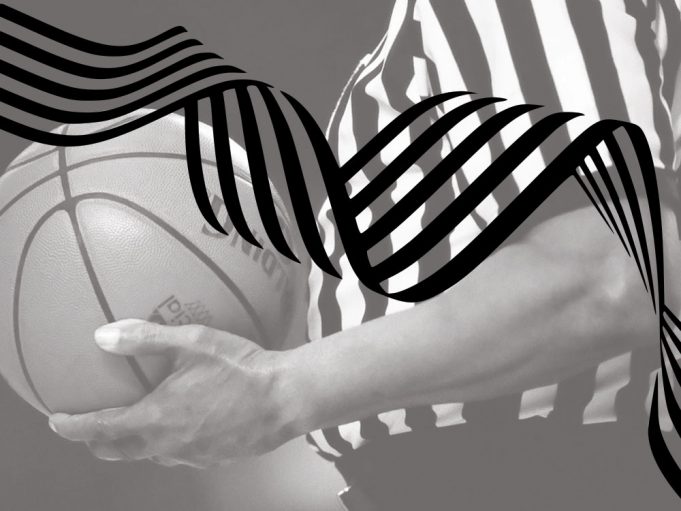H
ave you ever wondered why officials wear black and white stripes? In the early days of football, referees wore white dress shirts, bow ties and beret-style hats. The notion was that a formally dressed gentleman had an air of authority, which is what you wanted in an official. However, the trouble was some teams also dressed in white, including a group of Arizona football players. In 1920, a quarterback passed a ball to a referee named Lloyd Olds after mistaking his white shirt for a team uniform. The mixup so bothered Olds that he appealed to a proprietor of a sporting goods store to make a shirt that would set him apart from the players. And so, the black-and-white striped shirt was born.
Perhaps the selection of black and white stripes of equal width was more prophetic than originally intended. A century later sports in general, and officiating in particular, is more diverse than ever. Given the current state of affairs in this country, it is important to reflect on how officials are well ahead of the curve with regard to racial harmony. I am not saying there has never been racial injustice in officiating, nor am I saying there are not lingering issues. But those of us who officiate know we are different, we are special and that the stripes unite us.
The colors of our stripes mean more than just differentiation from the participants. Black and white are neutral colors, and we are charged with practicing neutrality. Our rulebooks are written in black and white, but we interpret the gray. We are covered in the pattern of stripes of equal width, so there is no mistaking our neutrality. Most important, our colleagues are Black and white, but we are all the same when we don the uniform. Why? Because we must go to battle with people we trust. We know that regardless of the color of the person inside the jersey, that person is generally good and ultimately our greatest ally. How good? I would argue that an overwhelming number are good people. The bad seeds usually weed themselves out and do not make it.
My closest friends are officials, and we gravitate toward each other regardless of race because we have common interests and goals. My kids call my officiating friends their uncles — and their children their cousins — regardless of whether they look like them. Sure, we have differences and even prejudices, but we embrace the differences, and often laugh at them, never thinking about acting on the prejudices, just knowing they exist. We are comfortable around our fellow officials and we know they will not be offended by the things we say, and in the unlikely event they are, an apology is sufficient and we move on.
People often compare officiating organizations to fraternities, but that comparison could not be more disparate. Unlike a traditional fraternity, we are afforded the opportunity to learn about one another’s differences. My officiating colleagues have witnessed me fast on game days that fall on Yom Kippur, some even learning about the holiday for the first time. Several years ago before a game at a Historically Black College or University, my umpire was singing along to a song commonly referred to as the Black national anthem, so we learned about it on the spot from him.
We get along because we are united by the stripes and bound by something more profound — the relatively small percentage of people with our scars. We are the arbiters of fairness and justice between two factions that do not care who we are or what we look like, not to mention the spectators berating us and wishing our demise. We succeed and sometimes falter together and support one another without giving a second thought to race.
Sports is a microcosm of life. Camaraderie in the locker room and on the field should translate to camaraderie off the field. Perhaps I am an idealist, but anyone who has been involved in sports appreciates that if you can get to know people and trust them enough, and spend any amount of time with them in sports, the natural progression is friendship off the field, regardless of color. That is how I was raised, that is how I have lived and that is how I teach my sons, both athletes.
Officials are blessed more than most; given our average ages, we should thank God each day that we are able to compete in an athletic forum, as most playing careers never have the longevity of an officiating career. The true blessing lies in the friendships we make over the course of that career. Black and white is important to us, to a certain extent. It matters because our race is part of our identities, but so is the black and white we wear on our backs. America could take its cues from officials in that we embrace our differences and celebrate what unites us.
What's Your Call? Leave a Comment:
Note: This article is archival in nature. Rules, interpretations, mechanics, philosophies and other information may or may not be correct for the current year.
This article is the copyright of ©Referee Enterprises, Inc., and may not be republished in whole or in part online, in print or in any capacity without expressed written permission from Referee. The article is made available for educational use by individuals.















